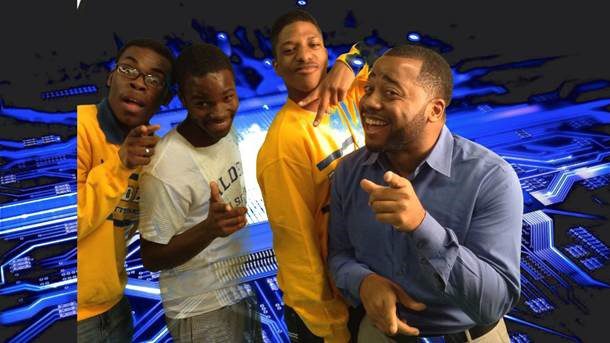
This summer, we brought education luminaries to our ACT campus as a continuation of the Center for Equity in Learning’s Distinguished Lecture Series. We were honored to have Michael Bonner, Dr. Joyce Brown, and Maurice Swinney share with us their secrets to success. Learn more from Principal Swinney below.
What’s the biggest change you’ve seen over the course of your career in education, and what’s the biggest thing we still need to change?
The most significant change is that schools are focusing on restorative practices as a gateway to deeper learning. I have watched education disciplinary frameworks shift from zero tolerance policies to restorative justice practices and behavioral health supports. That is huge when we think about how trauma impacts a child’s brain and community. The shift helps adults re-imagine our perspectives on why students behave in a particular way and how districts, schools, and communities wrap themselves around kids. Also, the change in practices has shown us where we “got it wrong” when thinking about minority students, primarily black and brown children in impoverished communities.
Chicago often gets a bad rap, but there are lots of amazing things going on in Chicago Public Schools. Tell us about the best thing you’ve seen in your school.
The best thing that I have seen in my school is my faculty and staff’s ability to wear multiple hats and continue to do an incredible job on a daily basis. It’s a phenomenon that I would love to write about after I complete my dissertation. The role of the teacher in my school is classroom instructor, pseudo-clinician, team leader/team member, and event planner. My teachers and staff perform miracles in the face of lack of resources, a disproportionate number of diverse learners, and limited time to complete tasks. We believe that all students deserve a robust high school experience like students in well-funded schools across the city and country. We also know that if we don’t support the vulnerable and high-risk students, we will suffer talent loss. This work ethic and moral compass have improved graduation, freshman on-track, and attendance rates while reducing suspension rates and course failure.

What is the most important thing a person who isn’t from the same environment, as your students should know about them?
My students are like orchids. The leaves of the orchid are strong and vibrant. The roots are exposed to air, but that’s how they absorb the moisture they need to thrive. Patience and some water help them produce flowers, but honestly, orchids only grow in the right conditions. My students have remarkable talents and abilities that sometimes are hidden under their struggles. But once they bloom, they stand out among all flowers and plants. Too often we attribute failure to students instead attributing failure to the adults, systems, and environments that surround them.
What inspires you about your work in education?
I’m inspired by my students who succeed and the ones who don’t. All of the rich context around the life of each student helps me to remain energized to work through some of the most complex problems to ensure that all students have a shot at college and careers.
Maurice R. Swinney is the principal at Edward Tilden Career Community Academy, a high school in Chicago Public Schools. Over the past five years, the school’s attendance rate has improved by over 10%, and the average ACT score has increased by over one full point in the first two years. Furthermore, Tilden’s freshmen on-track rate has increased by nearly 20%, and the dropout rate has been cut in half. Over the past five years, Maurice and his exceptional faculty and staff have improved student on-track rates, behavioral health, and post-secondary outcomes. He drives the school equity work, serving vulnerable and high-risk students who must have supportive adults, reliable systems and communities, quality teaching, and out-of-classroom experiences that ensure their success.
